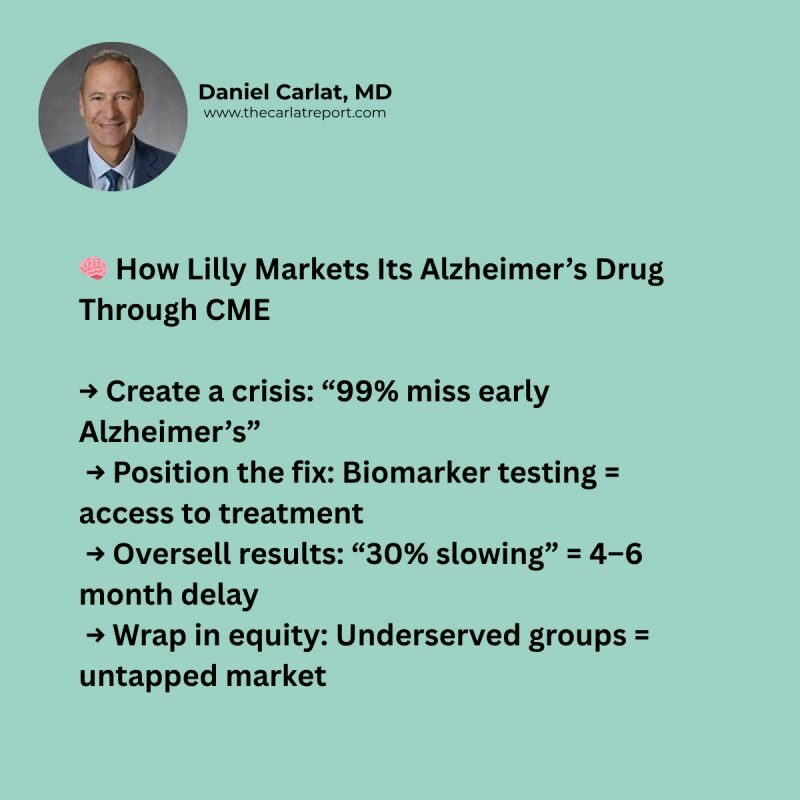I just read a Lilly-sponsored CME on Medscape featuring Dr. Malaz Boustani—a respected geriatrician doing critical work with underserved communities. But this isn't just education—it's marketing for Lilly’s anti-amyloid drug Donabemab.
Link: https://lnkd.in/evwta6p8
Here’s what Lilly is really doing:
Amplifying the Problem: “99% miss early MCI diagnosis.” This frames clinicians as falling short—and primes them for the solution Lilly will offer.
Positioning the Solution: Biomarker testing is presented as “essential” for early detection. But it’s also the gatekeeper to prescribing Lilly’s amyloid-lowering drugs.
Selling the Outcome: Terms like “30% slowing,” “trajectory change,” and “breakthrough” dominate. What’s left out? That 30% = just a 4–6 month delay over 18 months Annual cost = $26,500, not including monitoring Real-world benefit? Still unproven
Framing Expansion as Equity: Underserved communities are spotlighted—but these are the groups least likely to access expensive infusions and MRIs. Why focus on them? Because they represent untapped market potential, not just unmet clinical need.
Bottom Line: When CME creates urgency, redefines standards, omits nuance, and wraps it in equity messaging... …it’s not just education—it’s market development. Our patients deserve evidence-based education—not product promotion in disguise.
Related Material:
- "20 Years of The Carlat Report" Expert Q&A with Daniel Carlat, MD
- "FDA Clears First Alzheimer's Blood Test—What's Actually New Here?" Post by Daniel Carlat, MD
- "Pharmacotherapy for Dementia" Expert Q&A with Stephanie Collier, MD


_-The-Breakthrough-Antipsychotic-That-Could-Change-Everything.jpg?1729528747)



